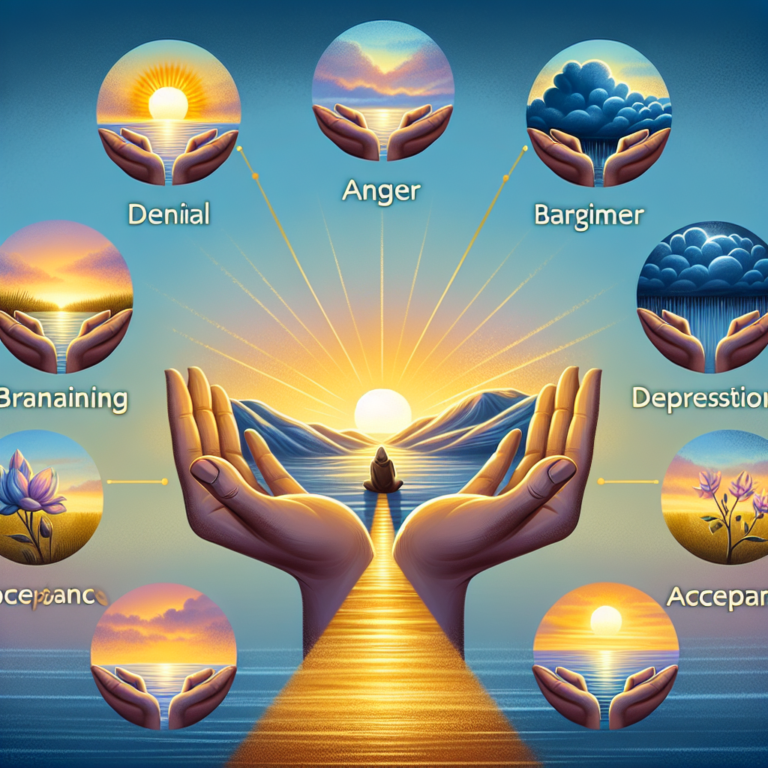
The Dark Side of Sleep Deprivation: How Lack of Sleep Impacts Your Mental Well-Being
Introduction
In a world that glorifies busyness and productivity, sleep often takes a backseat. The reality is, however, that sleep is not merely a luxury; it’s an essential pillar of mental and emotional well-being. As we delve into The Dark Side of Sleep Deprivation: How Lack of Sleep Impacts Your Mental Well-Being, it becomes evident that the consequences of ignoring this vital need can be both profound and alarming. From exacerbating anxiety and depression to impairing cognitive functions, the repercussions extend far beyond feeling tired. This article aims to shine a light on the multifaceted impact of sleep deprivation, enriched with insights, analysis, and actionable solutions to reclaim a healthy night’s rest.
The Science of Sleep: Why It Matters
Before we explore the dark side of sleep deprivation, it’s essential to understand the role sleep plays in our overall mental health. Sleep is a complex biological process that facilitates various recovery mechanisms for both body and mind.
The Sleep Cycle
Sleep consists of multiple stages, including REM (Rapid Eye Movement) and non-REM sleep. Each stage contributes uniquely to cognitive processes:
- Stage 1: Light sleep, a transition phase.
- Stage 2: Deeper relaxation; brain waves slow down.
- Stages 3 & 4: Deep sleep is crucial for physical restoration and immune function.
- REM Sleep: Important for memory consolidation and emotional processing.
The delicate balance of these stages underscores why disrupting this cycle can lead to dire consequences.
Sleep Deprivation Statistics
Statistics paint a disturbing picture. According to the Centers for Disease Control and Prevention (CDC), one in three adults doesn’t get enough sleep. This lack of sleep is linked to various mental health disorders, and understanding these statistics is pivotal in addressing the crisis.
| Statistic | Percentage (%) |
|---|---|
| Adults sleeping less than 7 hours a night | 35% |
| Adults suffering from insomnia | 30% |
| Increased risk of depression | 2-4 times higher |
| Adults reporting daytime sleepiness | 25% |
The Psychological Impact of Sleep Deprivation
Mood Disorders: A Vicious Cycle
Sleep deprivation is intricately linked to mood disorders, including anxiety and depression. A lack of sleep can exacerbate these conditions, leading to a vicious cycle where worsened mental health further disrupts sleep.
Case Study: Sleep and Depression in College Students
A study published in the Journal of Affective Disorders found that college students who reported high levels of sleep deprivation showed significantly elevated symptoms of depression. For individuals aged 18-24, the pressures of academic life often lead to decreased sleep, which in turn perpetuates feelings of hopelessness and anxiety.
Analysis: This case study highlights the importance of addressing sleep hygiene in young adults, a demographic particularly vulnerable to mental health issues due to lifestyle stressors.
Cognitive Function: The Fog of Sleep Deprivation
Sleep is crucial for cognitive functioning. Chronic sleep deprivation can impair attention, reaction times, and problem-solving abilities.
Table: Effects of Sleep Deprivation on Cognitive Abilities
| Cognitive Function | Impact Level (0-10) |
|---|---|
| Attention | 8 |
| Memory | 9 |
| Decision Making | 7 |
| Reaction Time | 8 |
A noteworthy finding indicates that just one night of insufficient sleep can result in cognitive performance being equivalent to that of someone who is legally intoxicated.
Emotional Regulation: The Overactive Amygdala
One of the most significant mental health implications of sleep deprivation is its effect on emotional regulation. Functional MRI studies have shown that sleep deprivation leads to overactivity in the amygdala, the brain area responsible for processing emotions.
Case Study: The Inability to Control Emotions
In a clinical trial, researchers found that participants who were deprived of sleep had a heightened emotional response to negative stimuli. This overactivity eliminated their ability to regulate emotions properly.
Analysis: This reinforces the need for adequate sleep to maintain emotional balance and resilience to stressors.
Social Implications of Sleep Deprivation
Sleep deprivation doesn’t just affect the individual—it can lead to broader social implications.
Impact on Relationships
Irregular sleep patterns can create strain on interpersonal relationships. A study by the American Psychological Association indicated that sleep-deprived individuals were more prone to irritability and conflict within partnerships.
Case Study: Marital Satisfaction and Sleep
Research from the University of Michigan found that couples who prioritized sleep reported higher levels of satisfaction in their relationships. Conversely, those with sleep issues were more likely to experience conflict and dissatisfaction.
Analysis: This case study is a call to action for couples to prioritize sleep in order to foster healthier relationships.
Strategies for Enhancing Sleep and Mental Well-Being
Sleep Hygiene: Creating an Optimal Sleep Environment
Adopting proper sleep hygiene is crucial. Here are effective strategies to enhance sleep quality:
- Maintain a Consistent Sleep Schedule: Go to bed and wake up at the same time, even on weekends.
- Create a Sleep-Inducing Environment: Keep your bedroom dark, quiet, and cool.
- Limit Screen Time: Avoid screens for at least an hour before bed to reduce blue light exposure.
- Mindfulness and Relaxation Techniques: Practices like meditation or gentle yoga before bedtime can promote relaxation.
- Avoid Stimulants: Limit caffeine and nicotine, particularly in the hours leading up to sleep.
Seeking Professional Help
For those struggling with chronic sleep deprivation, it is important to seek professional help. Cognitive Behavioral Therapy for Insomnia (CBT-I) can be an effective treatment, targeting dysfunctional thoughts and behaviors surrounding sleep.
Conclusion
The Dark Side of Sleep Deprivation: How Lack of Sleep Impacts Your Mental Well-Being unveils the severe consequences that insufficient sleep can have on various aspects of mental health. From mood and cognitive function to social interactions and relationships, the repercussions are complex and far-reaching.
As you reflect on this information, remember that reclaiming your sleep is an investment in your mental well-being. Prioritize your sleep health by integrating the strategies shared throughout this article and seeking help if necessary. The power to improve your mental health lies in your hands—embrace sleep as the essential pillar it is.
FAQs Section
1. How much sleep do adults need on average?
Most adults require 7 to 9 hours of sleep per night for optimal functioning.
2. What are the short-term effects of sleep deprivation?
Short-term effects include irritability, cognitive impairment, and difficulties in emotional regulation.
3. Can sleep deprivation cause long-term mental health issues?
Yes, chronic sleep deprivation is linked to an increased risk of anxiety disorders and depression.
4. What are some natural remedies for better sleep?
Natural remedies include herbal teas like chamomile, essential oils like lavender, and practices such as meditation.
5. Is it possible to recover from chronic sleep deprivation?
Yes, with commitment to sleep hygiene and potential professional intervention, individuals can often recover from chronic sleep deprivation and restore their mental health.
Understanding The Dark Side of Sleep Deprivation: How Lack of Sleep Impacts Your Mental Well-Being is an essential step in prioritizing mental health. Make the conscious choice to embrace better sleep for a healthier, happier life.















